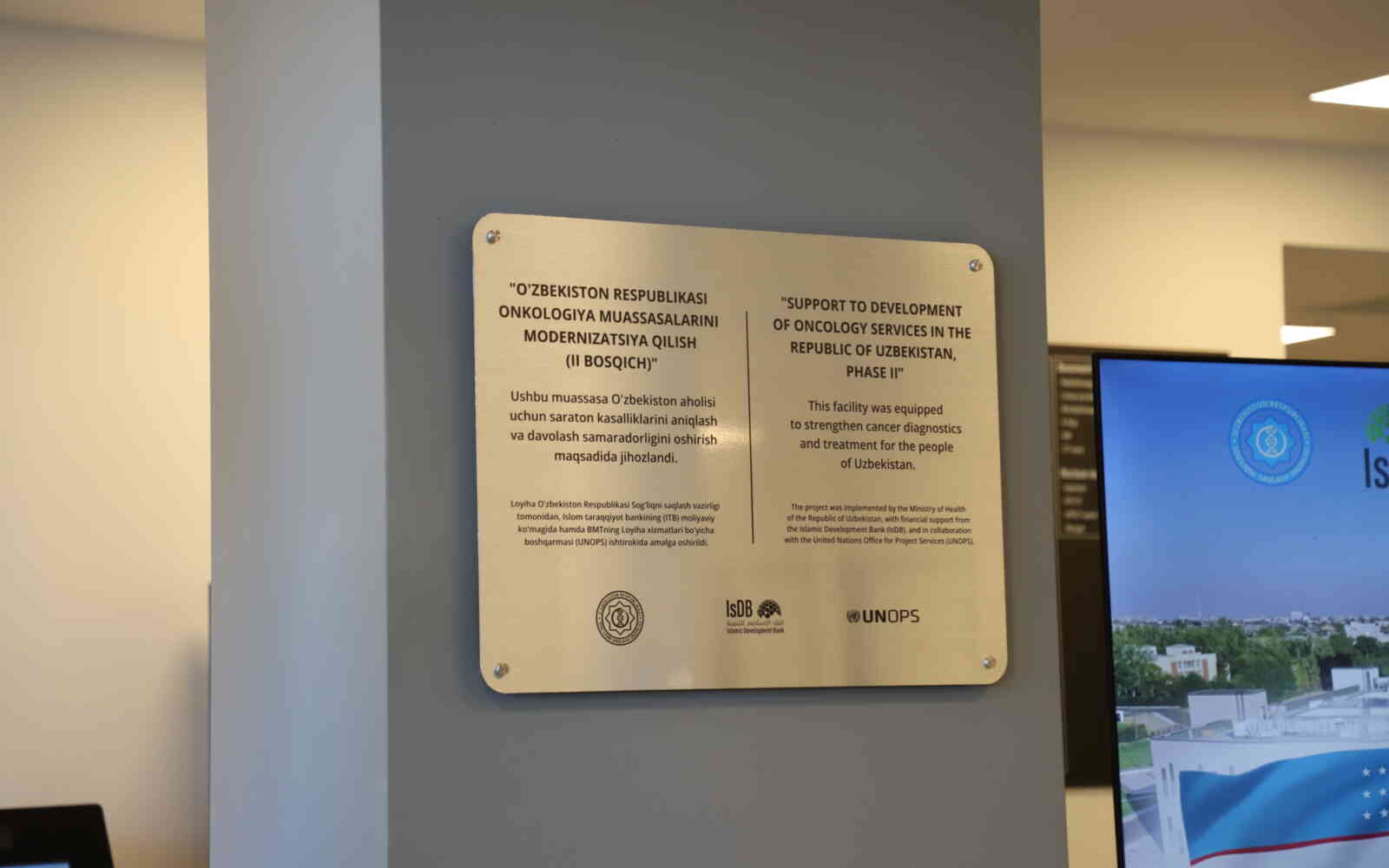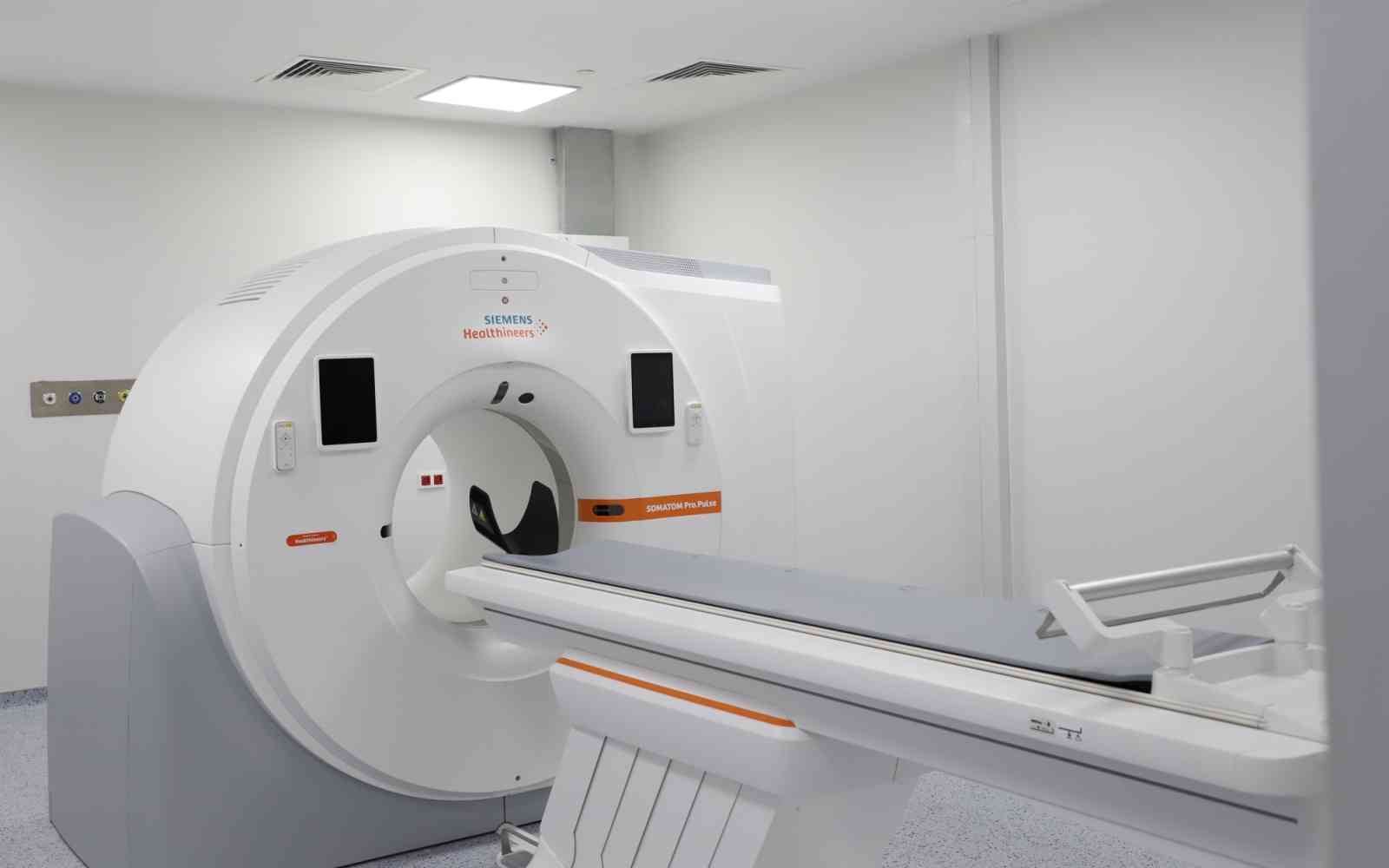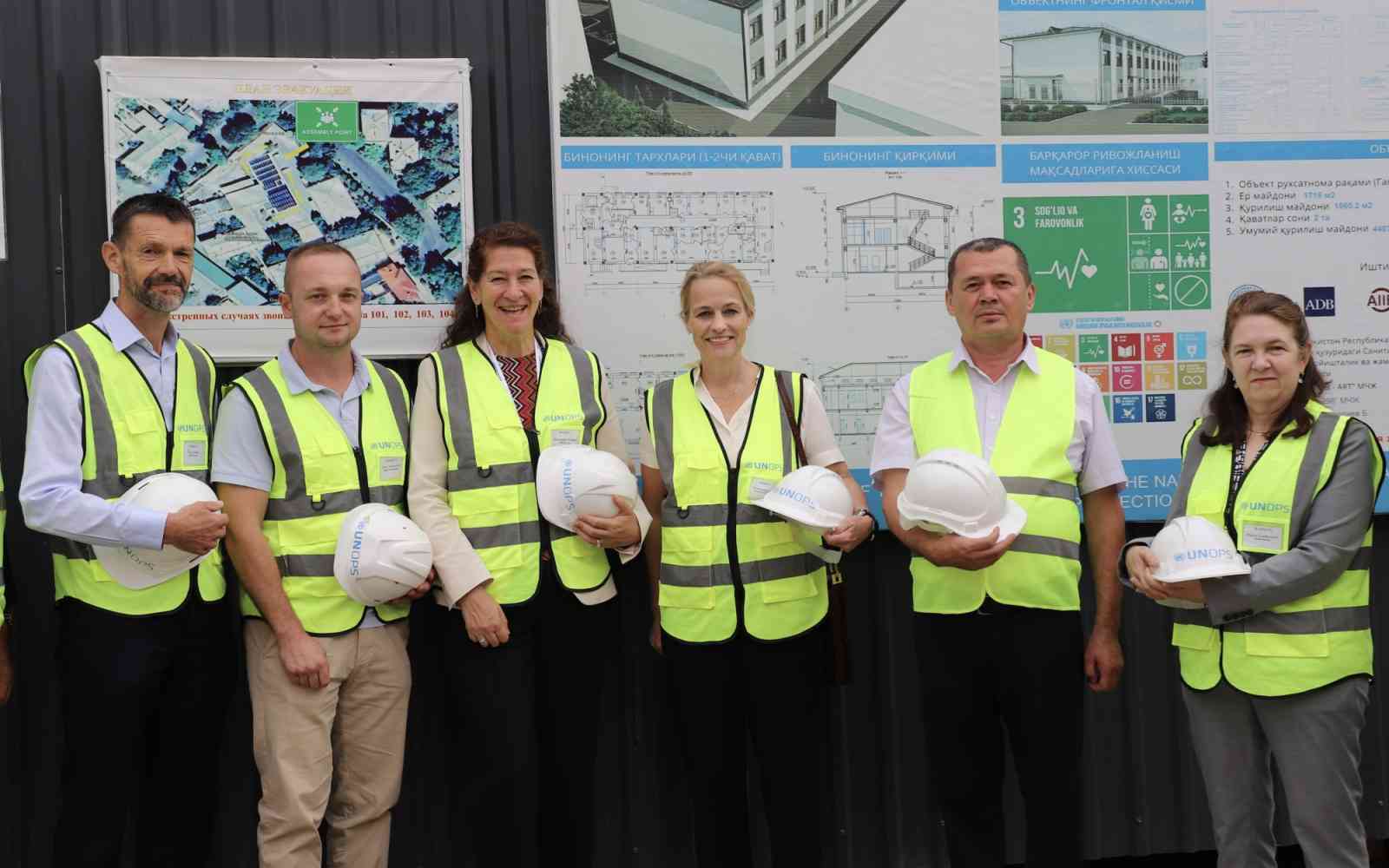The United Nations Office for Project Services (UNOPS)

Modern tools, safer care: supporting the future of healthcare in Uzbekistan
With support from the Asian Development Bank and the Asian Infrastructure Investment Bank, UNOPS is equipping hospitals and laboratories across Uzbekistan with modern tools and training to help healthcare workers respond better to current and future health threats.
The COVID-19 pandemic exposed critical gaps in Uzbekistan's healthcare system, from outdated equipment and inadequate training to limited capacity in rural and regional areas. Much of the infrastructure dates back to the 1980s and 1990s, with equipment that is now difficult to repair or replace. Many laboratories and medical centres also lacked the resources to diagnose and manage infectious diseases effectively.
Training systems for health professionals were outdated too, with limited access to practical or ongoing training. The country was in need for a stronger, more resilient healthcare system to face future outbreaks.




In response, UNOPS supported the government of Uzbekistan to procure new specialized equipment, with funding from the Asian Development Bank and the Asian Infrastructure Investment Bank. This was originally part of the country’s emergency COVID-19 response, which is now laying the foundation for greater healthcare security well into the future.
As part of the project, more than 200 hospitals and laboratories are planned to be equipped with medical, diagnostic and laboratory equipment. To date, over $3.6 million worth of essential medical and laboratory equipment has been delivered to 14 infectious disease hospitals across 13 regions. This includes more than 200 pieces of medical, diagnostic, and sterilization equipment, along with ICT systems to modernize workflows. More than 300 healthcare and laboratory workers received hands-on training in how to use the new tools safely and effectively.
One such facility was the Medical Center of Epidemiology, Microbiology, Infectious and Parasitic Diseases in Tashkent, which received 33 units of equipment and ICT hardware.

Our center has received a new generation of medical imaging equipment, which plays an important role in the early diagnosis of liver fibrosis and fatty liver. Previously, diagnosing these conditions required a needle biopsy, a small surgical procedure that could result in side effects. Now, with this advanced, non-invasive technology, we can accurately assess liver health without any surgical intervention.
The centre now offers improved inpatient and outpatient services to more than 10,000 patients annually. Staff can now carry out advanced diagnostic procedures using non-invasive technologies.
Our laboratory performs a number of coagulation tests. It helps to assess the patient's blood clotting ability, which is essential for diagnosing infections and monitoring treatment. Before, we used to do coagulation tests manually. Now, with the new coagulometer, the results come in much faster and we save time. This makes the process much easier.

Similarly, biochemical tests used to be calculated manually. However, with modern equipment, when only a patient's blood is submitted, the system automatically calculates and prints all the necessary data related to the analysis. What once took at least two hours now takes just 30 minutes.





With the arrival of new equipment, I’m witnessing the most advanced technology we've ever had. For example, the new generation of Biological Safety Cabinets are more energy-efficient, have advanced filtration systems, quieter operation, and smart touchscreen controls. It provides enhanced user safety and operational performance compared to older models.
Through this project, UNOPS is helping Uzbekistan strengthen its healthcare system by modernizing infrastructure and equipment, improving training, and ensuring that even remote regions have access to quality services. These efforts support Uzbekistan's national development priorities in health, infrastructure and reducing inequality, and help the country prepare for future health emergencies.
About this project
UNOPS is supporting the Ministry of Health to improve the country's healthcare system by delivering modern medical equipment, upgrading facilities through refurbishment and new construction and training healthcare workers.













